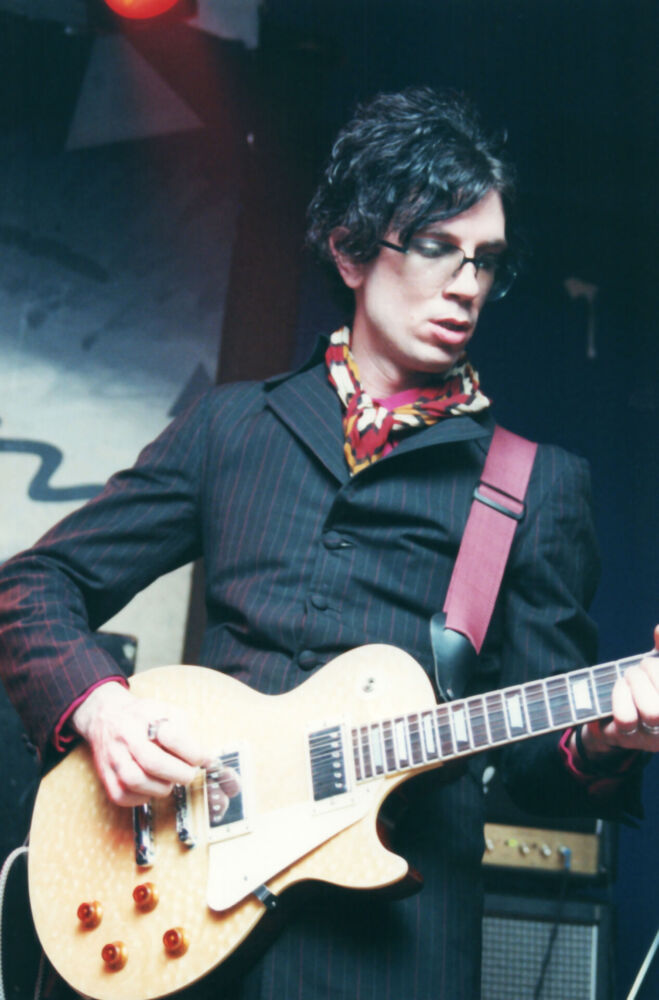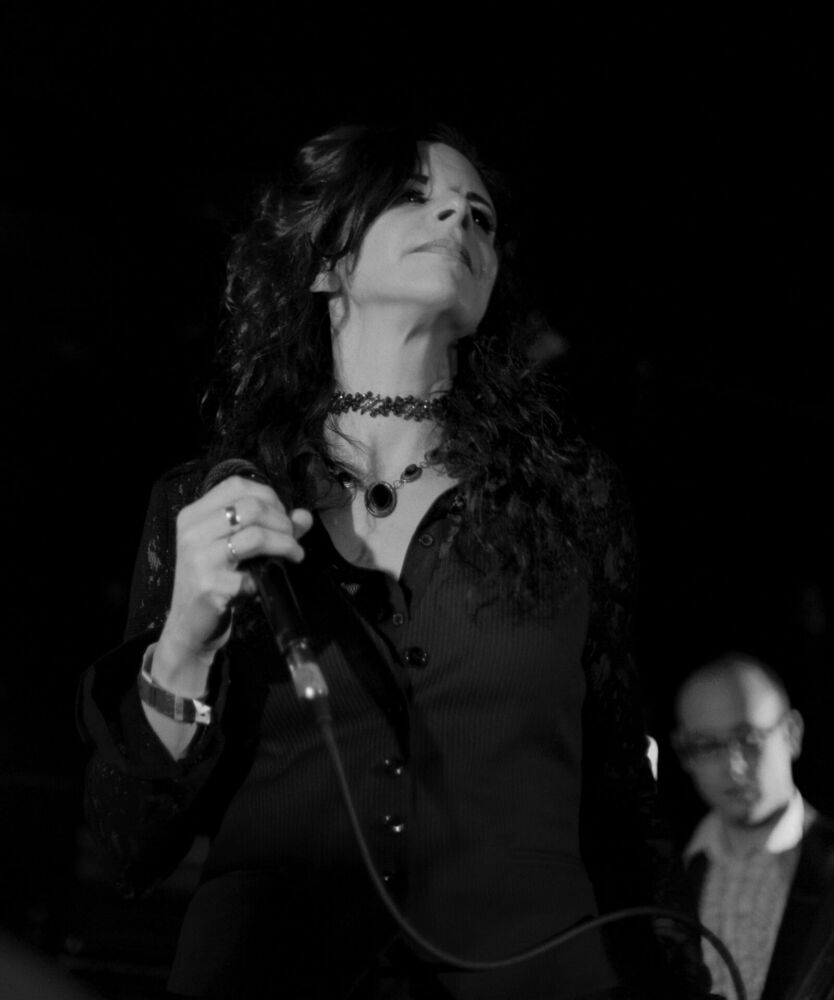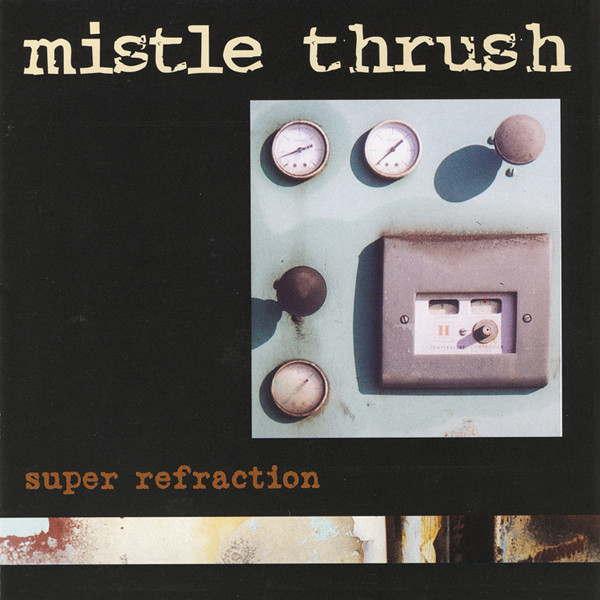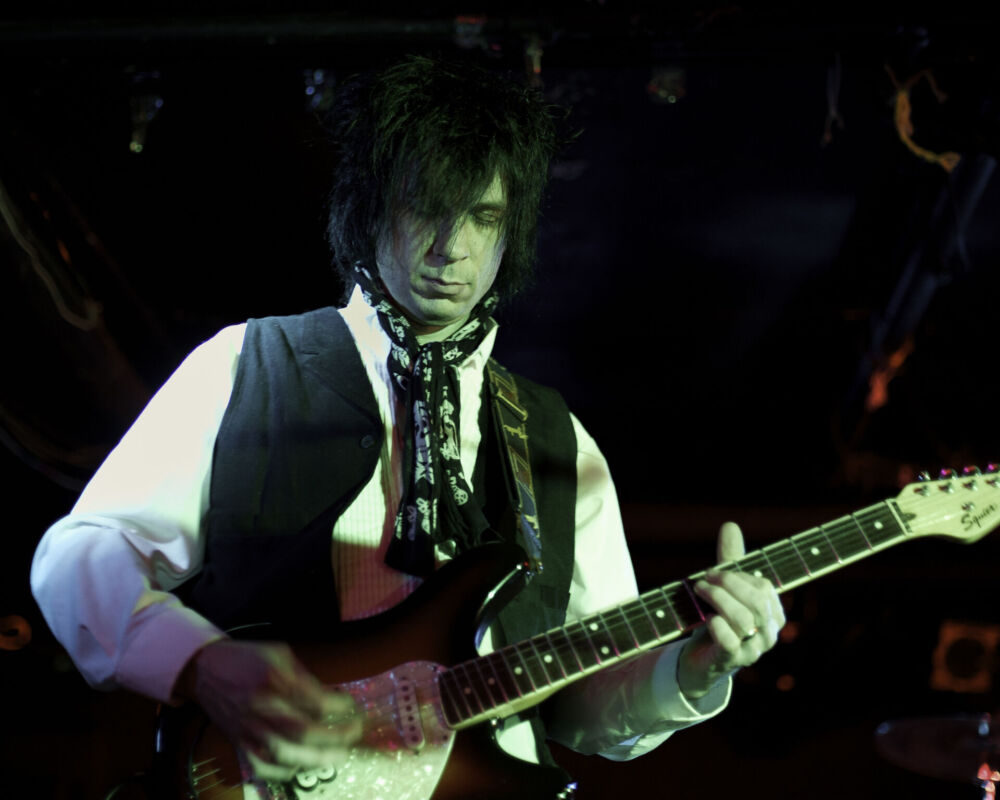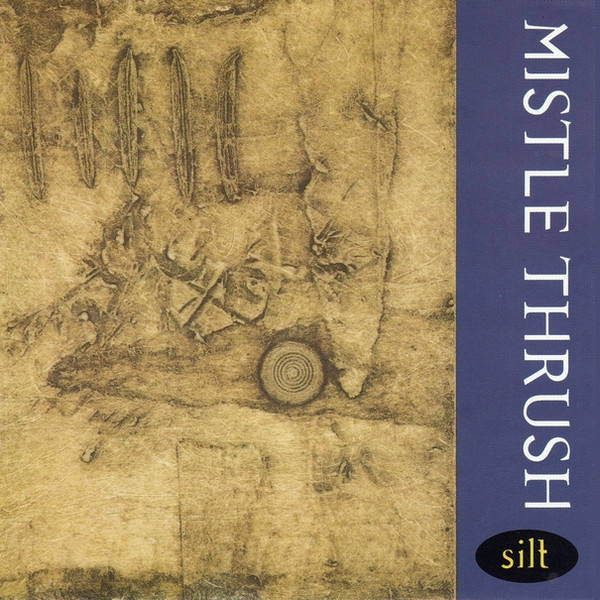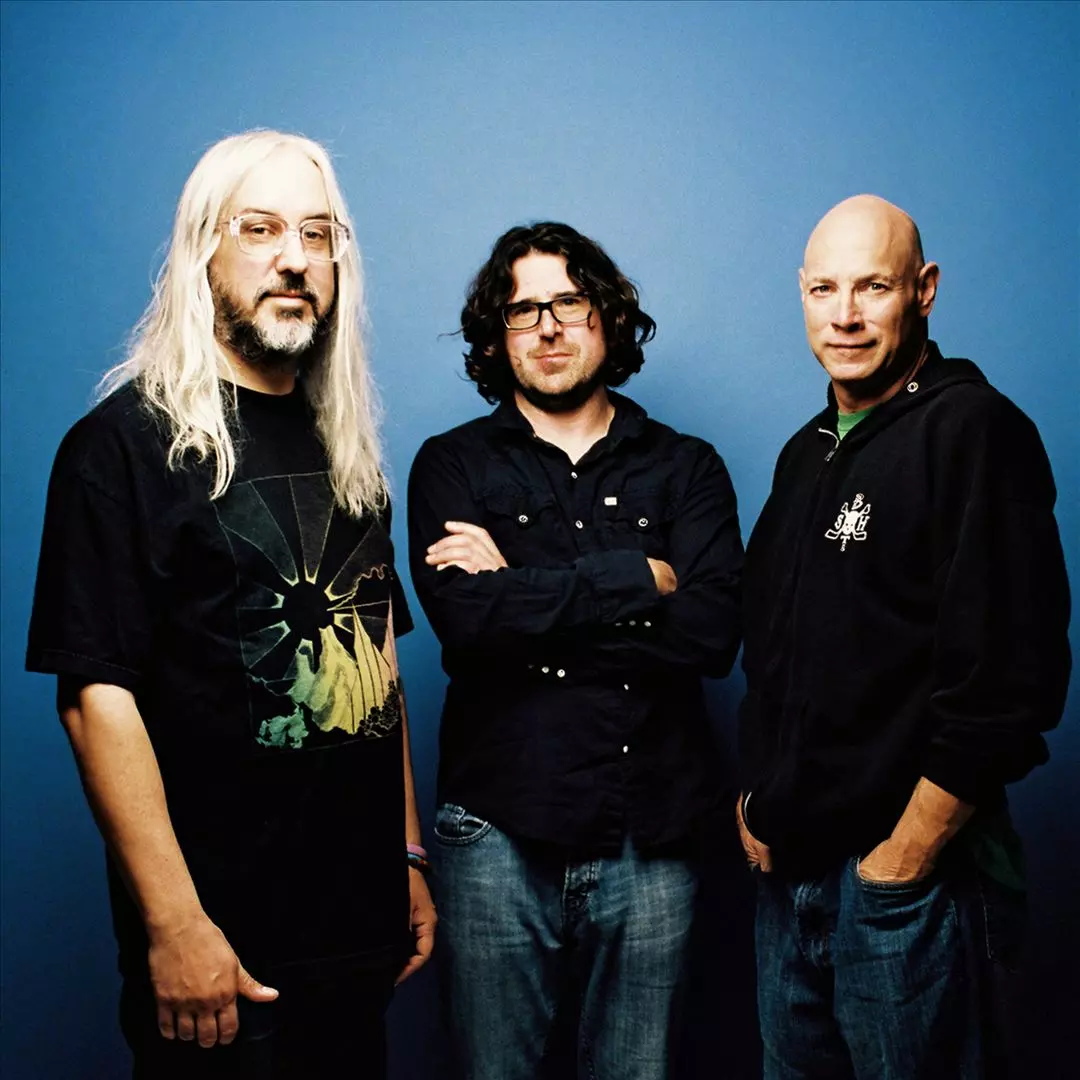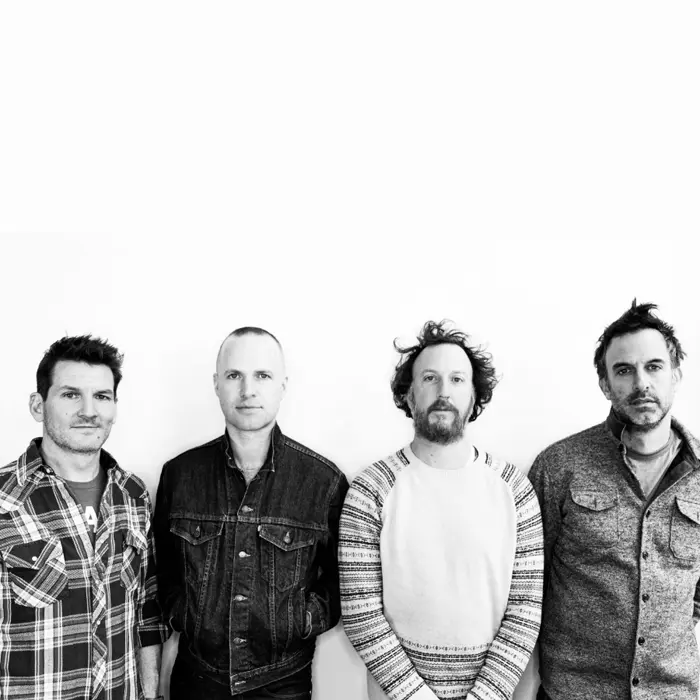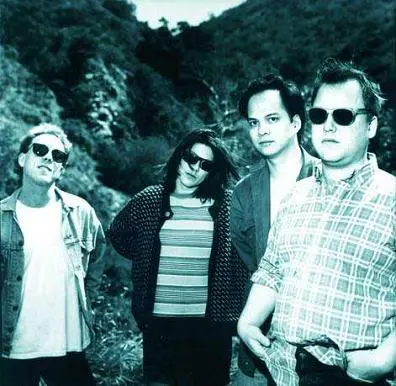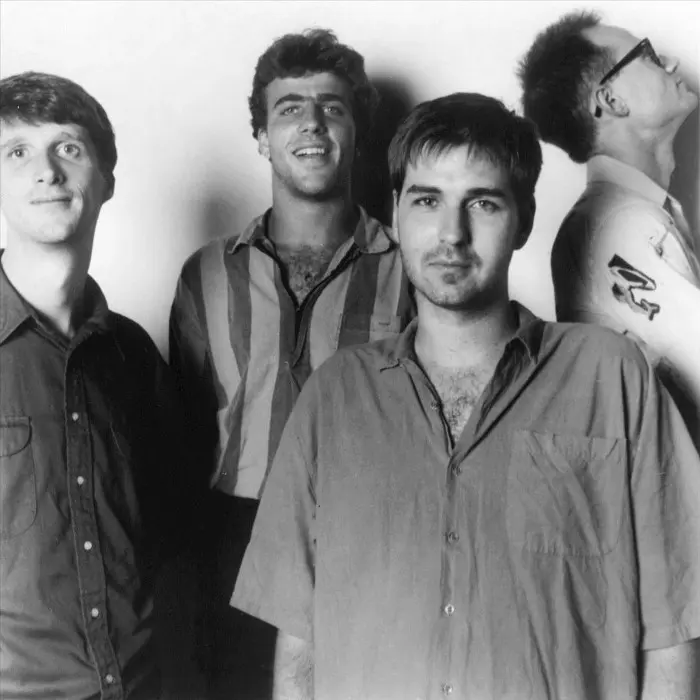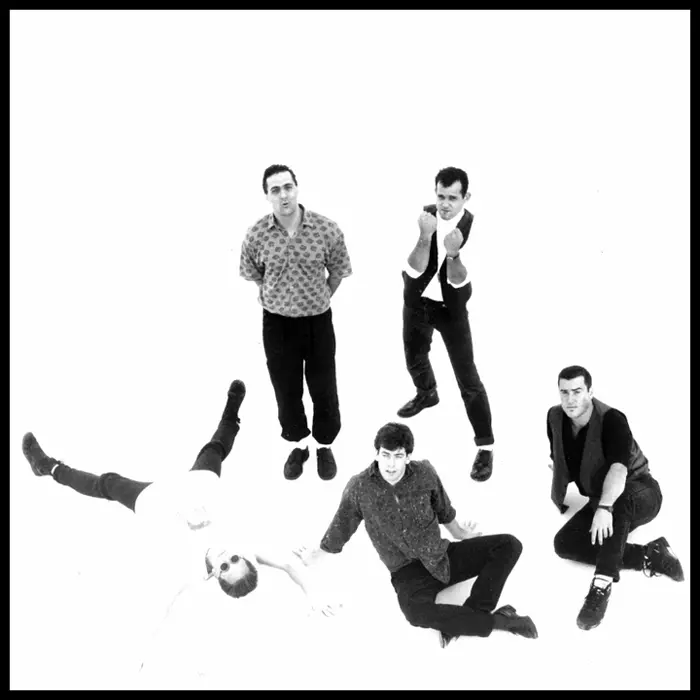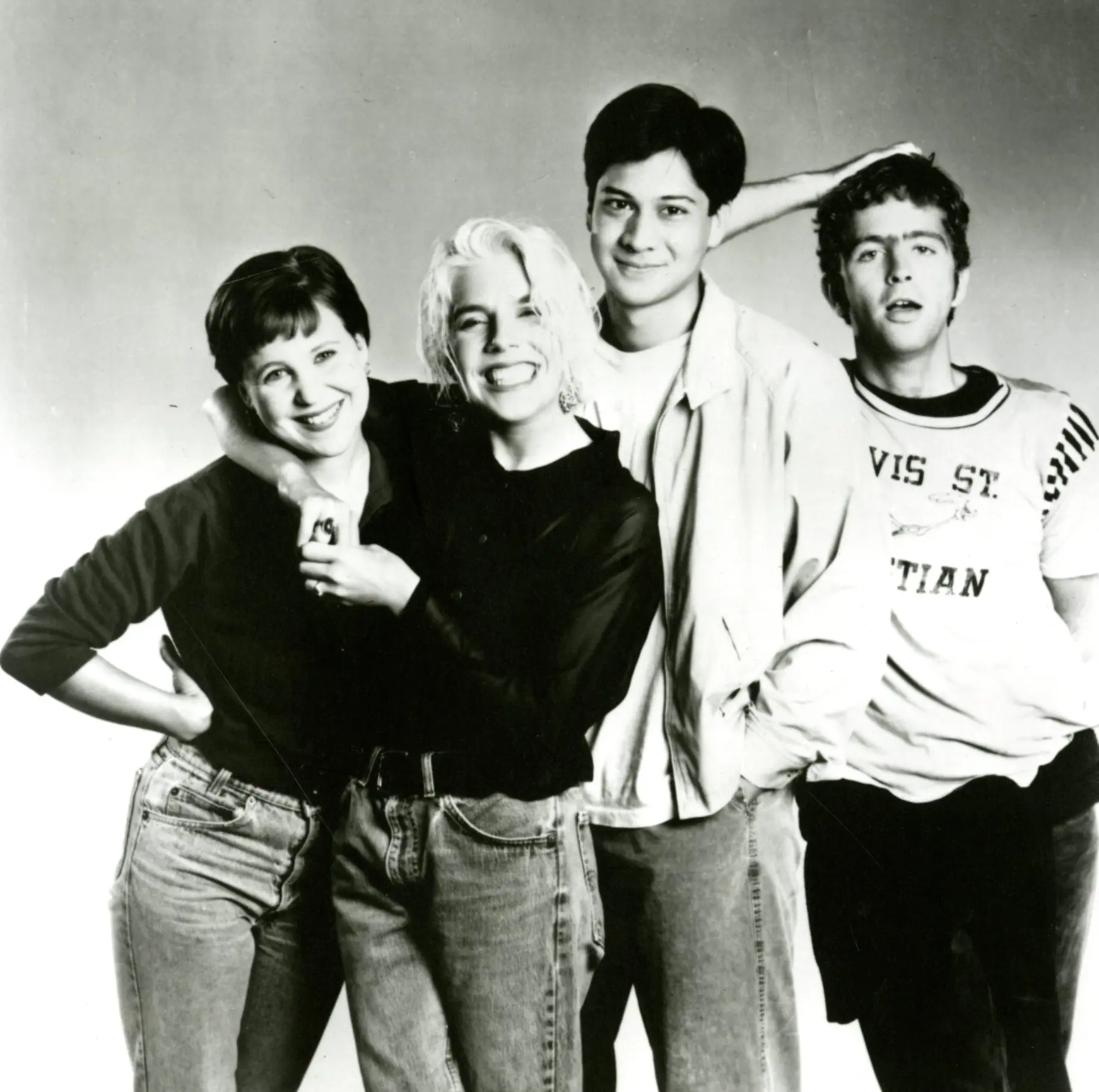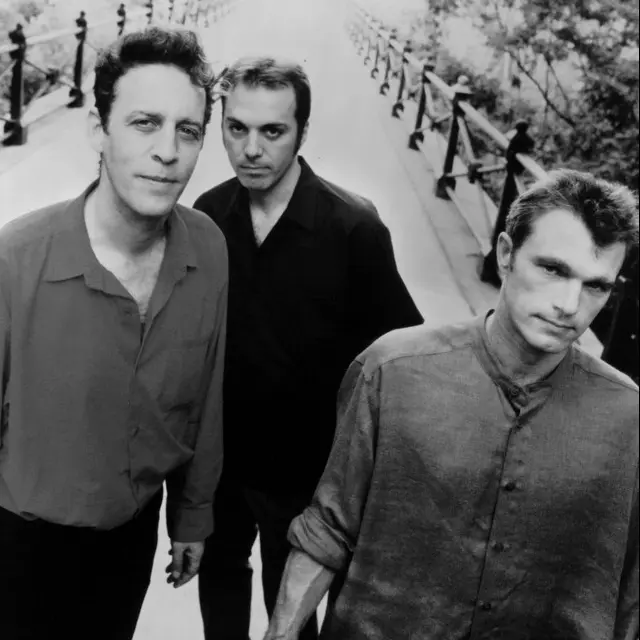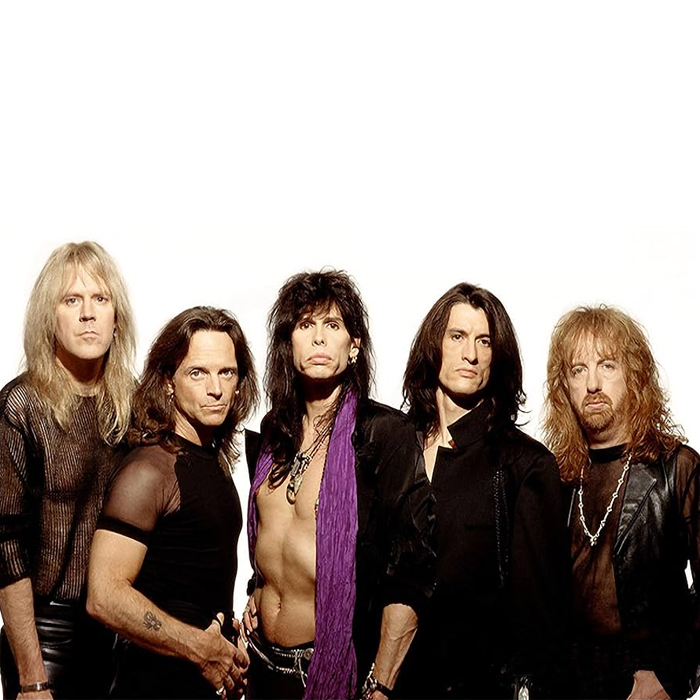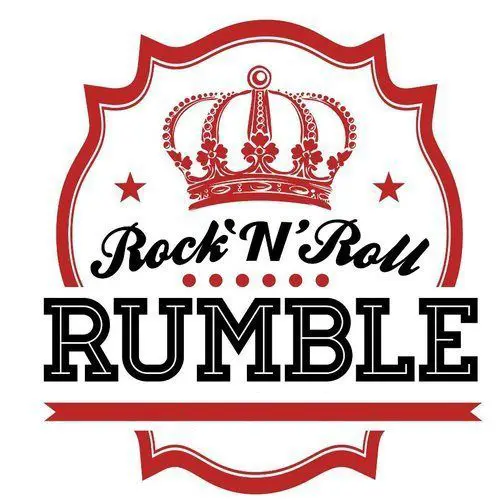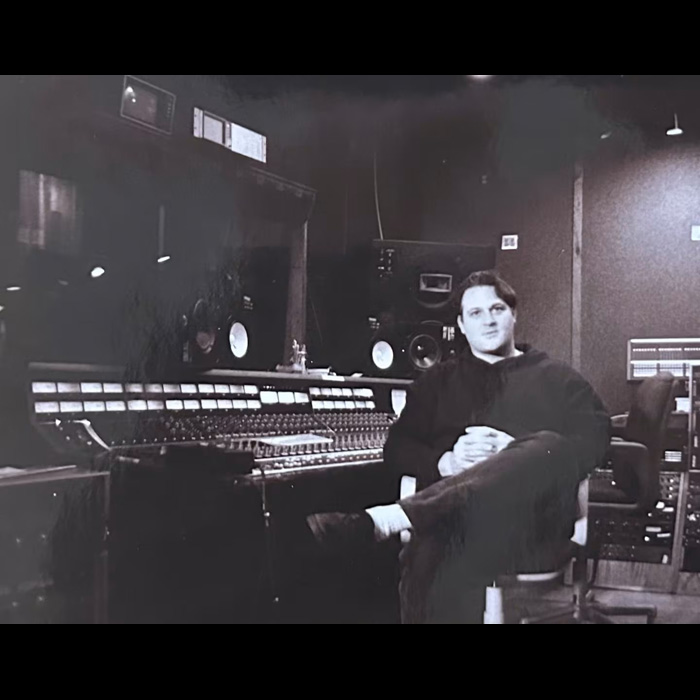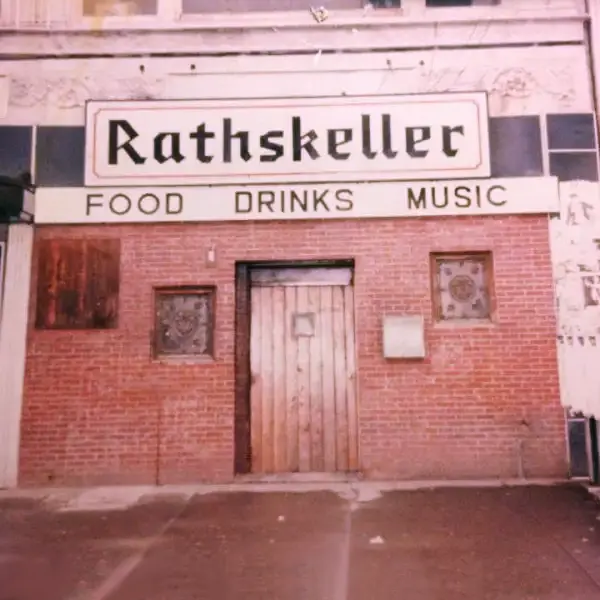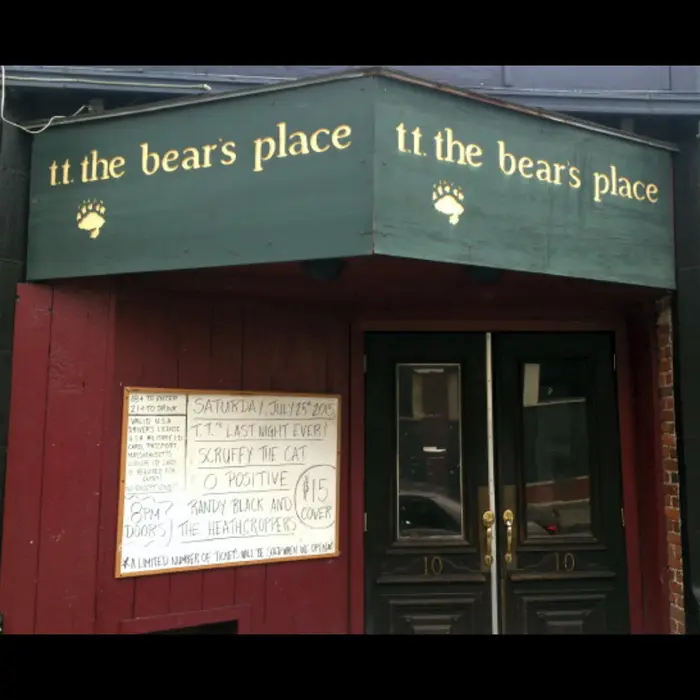Mistle Thrush
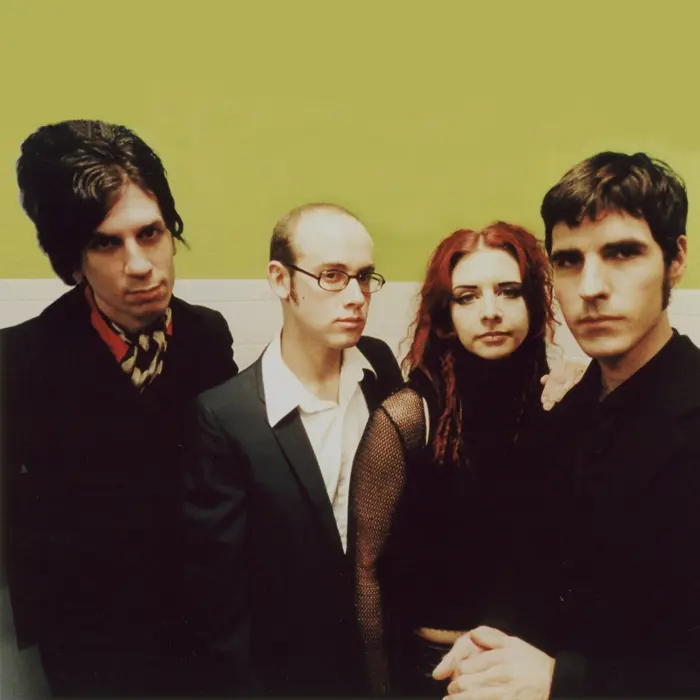
In the mid-1980s, when alt rock began replacing hair metal as the subgenre du jour, Boston spawned several acts that fit the plaid-clad bill to a tee and hit the proverbial big time, like Dinosaur Jr., Pixies, Throwing Muses and Buffalo Tom. But while the local scene was as fertile as ever in the ‘90s and some of the city’s alt acts cracked nationally in a lasting way, like Guster, others that seemed destined for serious stardom fell off the national map after their major-label debuts didn’t make a sizable commercial dent, like O Positive, Big Dipper and Tribe.
And among that group of what some call “unfortunates” and others call “too damn good for a major label” were Mistle Thrush, a critically acclaimed outfit with a sound as unique as their name. Though they never landed a major-label deal, which some attribute to increased competition in the alt-rock space and others write off as “shoulda, coulda, woulda,” they combined their vast array of influences into a sound all their own – imagine Kate Bush fronting 21st-century Creedance – and their songs became staples in the College Music Journal’s Top 200.
While countless critics have compared Mistle Thrush’s blend of intensity and atmospherics to The Cure in their Pornography heyday and most labeled them “goth,” others have noted similarities to Garbage, Blondie, The Smiths, English shoegazers Slowdive and Brit-folk icons Fairport Convention. Steve Morse of The Boston Globe called the group “a local treasure” and they shared various Boston stages with Aerosmith, The Strokes, Morphine, Slowdive, The Brian Jonestown Massacre, Amanda Palmer, Helium, Jen Trynin and Sonic Youth, among others. Between 1994 and 2001, Mistle Thrush recorded one 7” single, one EP and three full-length albums of original material.
FORMATION, “BESIDE,” AGUS AMÁRACH
The group came together in Boston in 1993, two years after Nirvana’s album Nevermind hit #1 in the Billboard 200, which introduced grunge and alt rock to the mainstream and resulted in a commercial feeding frenzy among major labels as they tried to sign as many similar-sounding acts as they could find. The original lineup was a quintet – guitarists Scott Patalano and Brad Rigney, bassist Ruben Layman, drummer Todd Demma and former Twelve Tone Failure vocalist Valerie Forgione – and they named the band after a bird that eats seeds and berries, including poisonous ones from mistletoe plants.
After gigging at The Rathskeller and other area haunts, they recorded their first single, “Beside” b/w “Shine Away,” issued in 1994 by Washington, DC-based Bedazzled Records. In June 1995, the label released the band’s one and only EP, Agus Amàrach (Celtic for “and tomorrow”), which saw favorable reviews from a number of critics, including AllMusic’s Jack Rabid, who praised the disc as “33 non-boring minutes of splendor and lovely dalliance” and noted a kind of “inner turmoil” in Forgione’s vocals. “The English don’t have the market on swirling atmospheres cornered,” he wrote. “Turn down the lights for this one, it’s gorgeous.”
ROCK ‘N’ ROLL RUMBLE, SILT
In 1995, Mistle Thrush made the semifinals at the WBCN Rock ‘n’ Roll Rumble (held at The Middle East in Cambridge and won by Doc Hopper) and used the prize money to record their debut album, Silt, at Fort Apache Studios (with guitarist Matthew Kattman, who replaced Rigney). With their Rumble success and the alt-rock scene at its peak, there was every indication that Mistle Thrush would waltz into the national spotlight by the end of the year, especially with Forgione dazzling audiences at the mic. “Back in ’95, there was this resurgence of female-fronted bands,” Demma told Michael Marotta of The Boston Phoenix in 2011, noting groups like Hole, Garbage, Portishead and The Cranberries.
But as anyone who knows anything about the music business will attest, major labels pass on difficult-to-categorize acts most of the time – the absence of a clear demographic limits ROI, to use commercial jargon – and Mistle Thrush was no exception. After Bedazzled released Silt, it saw solid reviews and gained the group broader attention – AllMusic’s Rabid said Forgione’s “elegant pipes” on the album “lifted them into a special category” – but it didn’t result in major-label signing. The band kept at it, however, developing their uniquely hybrid sound even further over the next two years at clubs and festivals around the Northeast and opening for national acts including Garbage and Sonic Youth.
SUPER REFRACTION
Their persistence paid off in 1997, when they signed a five-album deal with so-called “indie label” Egg, which wasn’t exactly “indie” since it was bankrolled by Elektra, meaning Mistle Thrush got as close to a major-label deal as is possible without actually having one. The result was Super Refraction, an 11-track disc that made The Boston Herald’s “Local Best of 1997” list and earned Forgione a Boston Music Award nomination for Outstanding Female Vocalist.
Stylistically, the LP was a hodgepodge of indie-pop varieties, which the band’s fans had come to expect, but which didn’t stop critics from lumping them into the usual category – goth – given the album’s general mood. “Super Refraction dabbles so heavily in dark moods and toxicity that you’d be hard pressed not to call it ‘goth,’” said the editors at PopMatters. Noting how completely different the album was from other alt-rock studio efforts at the time, Ned Raggett said Mistle Thrush might have been more successful had they formed a few years sooner than they did. “Super Refraction almost suggests an alternate path for alternative rock if the Nirvana breakthrough hadn’t happened,” he wrote. “No brutal grunge and plenty of spirited dabbling.”
”We thought it was a great thing, an asset. ‘We can’t be categorized!’” Demma told Marotta of The Phoenix when asked about their impossible-to define vibe. “But, really, what a detriment that is, marketing-wise. We were always tripping over ourselves to be clever and have something for everyone.” Agreeing with the kind of clarity only 20/20 hindsight can provide, Forgione said the band’s unclassifiable sound was a significant stumbling block in terms of gaining a national foothold. “There’s a reason pop music has such wide appeal,” she said. “A lack of easy definition was one of our biggest hurdles.”
LEAVING EGG, LINEUP CHANGE, DRUNK WITH YOU
After supporting Super Refraction with a tour, they signed a publishing deal with Warner-Chappell Music and used most of the advance money to buy out the rest of their five-album deal with Egg, with whom they’d become disillusioned, according to a 2002 article by Brett Milano in The Boston Phoenix. By early 1998, the band had become a quartet with the departures of Kattman and Layman and the addition of bassist Matthew Klain. After spending the next two years writing new material and performing live, during which time Forgione played Mary Magdalene in the Boston Rock Opera’s 2000 production of “Jesus Christ Superstar”, they cut their final album, Drunk With You, in early 2001 at Q Division in Boston; Los Angeles-based Ecstatic Records issued it in June.
Two weeks before the album dropped, they headlined a sold-out show at T.T. the Bear’s Place with two openers who happened to be on the cusp of major breakthroughs, Black Rebel Motorcycle Club (whose debut album had dropped a month before) and The Strokes (whose debut album dropped two months later). “The week before the show, both of those bands were blowing the fuck up,” Demma told Marotta of The Phoenix. “So we get to T.T.’s for soundcheck, and there’s already a line around the block. I wish I’d had the foresight to flip the order of the bands. Sure enough, the two of them play and two-thirds of the room clears out.” Speaking about the gig in June 2024, Forgione said it didn’t “hurt” Mistle Thrush per se, noting that they sold out The Middle East a few weeks later, but said “folks who wanted to see us couldn’t get in” due to the crush of BRMC and Strokes fans.
DISBANDING, 2011 REUNION SHOW, FORGIONE’S REFLECTIONS
Drunk With You was a major departure from Super Refraction since it contained virtually none of the gloom for which the group was known and couldn’t be put into the “goth” bin along with everything else the band had ever recorded. The album received positive press for what a PopMatters review referred to as its “glittery guitar and heavy alt-crunch, the kind of stuff you’d hear on the radio about five years ago alongside No Doubt” but didn’t provide enough traction to keep Mistle Thrush together full time after 2003.
They reunited for a show at The Middle East some eight years later, in January 2011 (as part of Soozapalooza), and again in 2014 for WMBR’s Pipeline! 25th anniversary event. At the time, Forgione was the executive vice president of Newbury Comics, Demma had relocated to Los Angeles and was working as a drummer and tour manager, Patalano was playing with Gene Dante & The Future Starlets and Klain was pursuing other interests. Today, all members of the quartet remain musically active; Forgione has a solo project, Lovina Falls, and released her debut album, Calculating the Angle of Our Descent, in May 2023, Patalano and Klain are part of her band and Demma is touring with English post-punkers The Chameleons.
Asked for reflections on her Mistle Thrush years, Forgione said they left her with some of her “best and most ridiculous memories,” taught her “how to handle disappointment, overcome adversity, navigate relationships and survive on a bad cup of coffee and little sleep” and resulted in some of her longest-lasting friendships. “The chemistry and magic of Mistle Thrush was something very special and I’m proud of our body of work,” she said, adding that her only “regret” is that the distribution outlets were extremely limited when they were active compared to today. “Nowadays, there are so many more opportunities for an artist to release music and promote their work on their own terms. I wish that had been possible back then,” she said.
(by D.S. Monahan)

